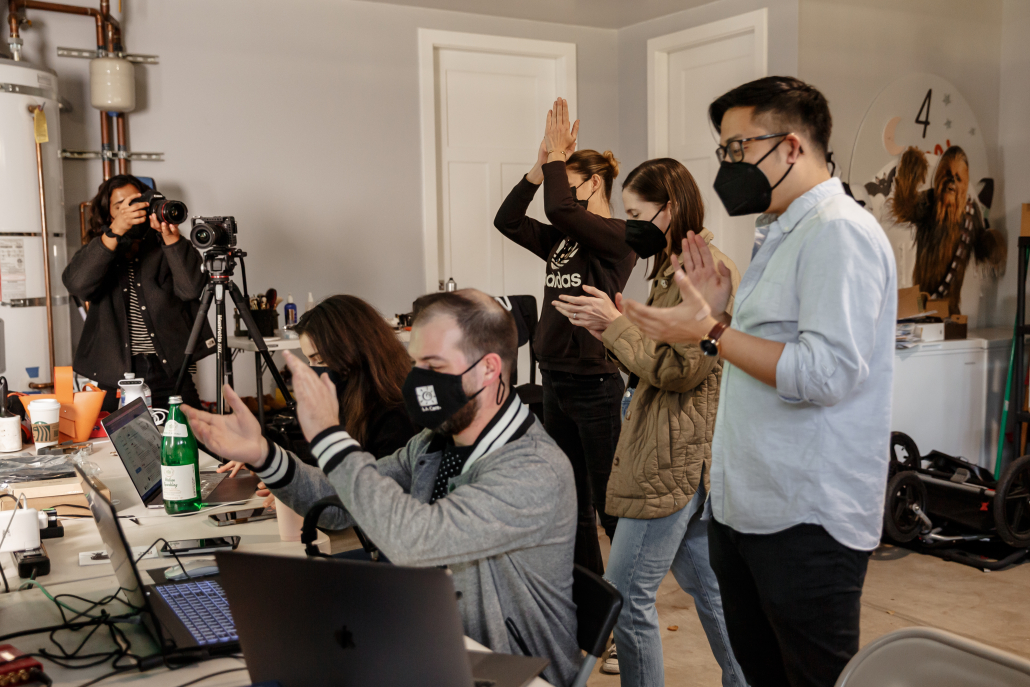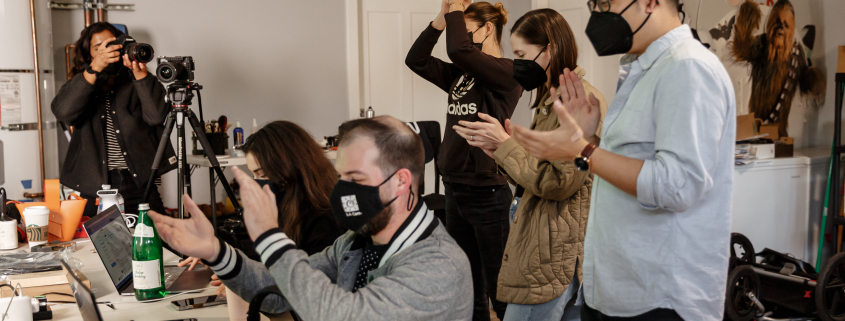Student launches space media company

During her time spent learning about humans and space, Britt Duffy Adkins, a graduate student studying urban planning, noticed the lack of representation in conversations about the final frontier. She also recognized the simplification of space exploration as a solely “engineering problem” that did not take social, political and cultural implications into account.
While enrolled in the Space Resources Program at the Colorado School of Mines in 2019, Adkins wanted to create a media company more accessible to previously underrepresented groups in the space industry. In 2020, she started Celestial Citizen, a medium to provide people an opportunity to see themselves in future conversations of space exploration and to “reject the status quo, both here and in the Cosmos.”
“If you look at the way that we’ve done things in space, historically, it’s really been focused around this white male, American-centric narrative, and that’s kind of just the way that things have always been done,” Adkins said. “Missions have always been planned with that bias in mind … Our storytelling about space has always been told through that specific lens.”
The Celestial Citizen podcast, which first aired in January 2021 and has since produced two seasons of content, is the space media company’s first project. The podcast aims “to provide an opportunity for conversation about how to be a better interplanetary citizen and responsible steward of Earth and the cosmos.” Topics on the show range from space environmentalism and orbital debris to health considerations for the LGBTQIA+ community.
The podcast also brings on different guests, including experts on space, human rights and engineering. One of the show’s guests, Angel Abbud-Madrid, the director for the Center of Space Resources and Space Resources Graduate Program at the Colorado School of Mines, encouraged Adkins when she came up with the idea for Celestial Citizen.
“I was quite excited,” Abbud-Madrid said. “It was one of the first interviews, and to be interviewed by a student, it’s always exhilarating, especially [being] interviewed by her because she has very pointed questions … It was a great way to contribute to what my expertise is, and being interviewed by her was quite an honor.”
Marlon Boarnet, professor and chair of the Department of Urban Planning and Spatial Analysis at the Price School of Public Policy, urged Adkins to apply to USC from the Colorado School of Mines. Boarnet said that it is not unusual for graduate students from Price to start their own companies.
“The nature of the company, of course, is very innovative, so I’m thrilled to see it,” Boarnet said. “We’re also proud of [Adkins] … She’s bringing the same kind of initiative and leadership that we really do try to foster among all our students, and so we’re thrilled with her accomplishments.”
Boarnet also described Adkins as a “self-starter.” Their conversations revolved around ideas that she had already thought through, Boarnet said.
“A lot of my advice was to help her think through the analogues of the urban governance problems that we see here on Earth,” Boarnet said. “A whole lot of planning is thinking through the basics of government to democratic representation.”
Price classes guided Adkins and her company, including adjunct professor Katherine Perez’s “Participatory Methods in Planning and Policy” class, which Adkins said allowed her to ideate on potential participation methods for the community, and professor Lisa Schweitzer’s “Seminar in Social Justice and Public Policy” class, which she said encouraged her to think about how she wanted to represent her media group.
Celestial Citizen also releases content through different media formats, including film, YouTube videos and livestreams. The media company recently debuted “Take Up Space,” a short film that premiered at the Overview Effect Film Festival. The company also launched Continuum, a podcast that covers space news.
Evan Yee, the head of production for the Celestial Citizen podcast and the producer and director of the Continuum podcast, joined the team when he met Adkins through a connection from another student at USC. He described the workflow as consisting of doing work during the week and the weekends.
“A lot of people admire [Adkins’] vision and her drive to create something so special and unique,” Yee said. “I really admired the kind of leadership spirit that she has and [am] happy to support and advise where I can and make this a really great working relationship so that we can put out some awesome products.”
From the perspective of a casual space fan, Yee said he believes that looking into space issues can help with examining problems on Earth.
“The narrative of space right now in the mainstream media is the billionaire space race,” Yeehe said. “[The podcast is] about really broadening everyone’s horizons about why this is helpful for everybody, and it’s not just Elon Musk and Jeff Bezos just zooming up there as fast as they can.”
Adkins said that one of the most rewarding parts about creating Celestial Citizen has been shifting the way media covers space exploration. She sees Celestial Citizen as being a counterbalance to the currently “stale narrative” of the media.
“We all receive messages, emails from people that listen to the podcast that will say, ‘I never thought … that I could have been a part of the space industry, or I never thought that this would be something I could do or something I could pursue, but listening to the podcast or seeing your films made me feel like there’s a place for me,’” Adkins said.

